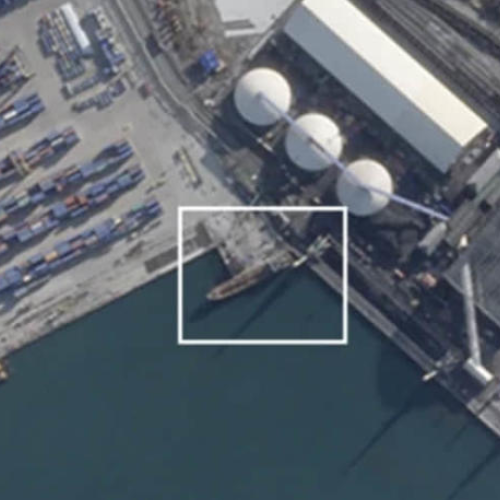New satellite images have revealed a bold move by Russia: secretly supplying North Korea with over 1 million barrels of oil this year. This discovery was made by analyzing the movement of ships between Russia and North Korea through satellite images. These ships were seen leaving Russian ports empty but returning fully loaded after visiting North Korea.
The shipments were tracked from a port in Russia’s far east, Vostochny, to five different ports and terminals in North Korea. Experts say this goes against strict rules set by the United Nations (UN), which limit how much oil North Korea is allowed to receive every year. In fact, these rules only allow North Korea to import 500,000 barrels annually. But in just eight months, Russia has reportedly provided double that amount.
This action highlights a growing relationship between Russia and North Korea, where both countries seem to be helping each other in ways that defy global restrictions.
Why Is Oil Being Sent to North Korea?
North Korea is a heavily sanctioned country, meaning many nations have agreed to limit trade with it. This is because of its controversial weapons programs. In 2017, the UN Security Council imposed strict sanctions on the country, including a rule to drastically limit how much oil it could receive. Oil is critical for running a country—it’s used for transportation, industry, and even military operations.
However, Russia, a permanent member of the UN Security Council, appears to be ignoring these rules. Experts believe the oil shipments are part of a secret exchange. In return for the oil, North Korea is reportedly providing weapons and possibly even soldiers to support Russia’s ongoing war efforts. This partnership benefits both countries: Russia gets military aid, and North Korea receives the resources it desperately needs to keep its economy and military running.
How the Secret Was Uncovered
The investigation that revealed these activities was conducted by a UK-based team of analysts and a major news organization. By using satellite images, they followed the path of tanker ships traveling between Russia and North Korea. The ships left North Korea sitting high in the water, meaning they were empty. But when they returned, they appeared full, indicating they were carrying heavy cargo—likely oil.
Russia’s Shadow Oil Fleet Faces EU’s New Sanctions Plan
This evidence suggests Russia has been supplying North Korea with massive amounts of oil since March 2024. Between March and November, at least 1 million barrels of oil were reportedly delivered—far exceeding the limits set by the UN.
Adding to the issue, earlier this year, Russia used its veto power in the UN Security Council to shut down a team of experts who monitored whether countries were following sanctions against North Korea. Without these experts, tracking illegal activities has become much harder.
These findings confirm suspicions raised earlier this year about Russia and North Korea working together more closely. Experts say this collaboration could have serious consequences, especially as it involves oil and weapons, which are critical for military power.
A Growing Partnership Between Russia and North Korea
This exchange of oil for weapons shows how closely Russia and North Korea are now working together. Both countries are facing heavy sanctions and criticism from the global community, and this partnership allows them to help each other bypass international rules.
The fact that Russia is a permanent member of the UN Security Council, yet is openly violating its rules, makes this situation even more alarming. It highlights how some countries are willing to ignore international laws to serve their own interests.
This isn’t the first time Russia has ignored UN sanctions on North Korea, but this is one of the clearest examples of their growing cooperation. It also raises questions about how such activities can be stopped when one of the most powerful members of the UN is involved in breaking the rules.
The investigation sheds light on a hidden exchange that has been happening behind the scenes, involving oil, weapons, and a bold disregard for global agreements.


